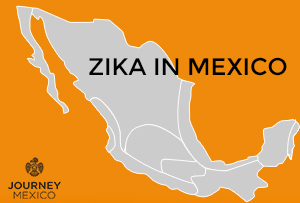 As you may have heard from recent international news, the Zika virus is spreading rapidly across the globe.The Zika Virus is a mosquito-borne viral infection which is transmitted by the same type of mosquito linked to dengue and chikungunya. The World Health Organization (WHO) declared a state of emergency yesterday, and the Centers for Disease Control (CDC) has issued an enhanced precaution alert for those traveling to affected regions.
As you may have heard from recent international news, the Zika virus is spreading rapidly across the globe.The Zika Virus is a mosquito-borne viral infection which is transmitted by the same type of mosquito linked to dengue and chikungunya. The World Health Organization (WHO) declared a state of emergency yesterday, and the Centers for Disease Control (CDC) has issued an enhanced precaution alert for those traveling to affected regions.
Here is what you need to know about the Zika virus in Mexico:
- Cases of Zika have been identified on four continents. It has been detected in more than 20 countries in the Americas, including the United States.
- Symptoms can include mild fever, rashes, conjunctivitis, muscle or joint pain, and general feeling of illness that begins 2-7 days after infection. Four out of five people who are infected have no symptoms at all.
- The spread of the virus has been linked to thousands of birth defects (microcephaly) thus prompting countries to advise pregnant women against going to the areas where it has been detected.
- If you are not a woman of childbearing age who is pregnant or trying to get pregnant, the Zika virus is unlikely to cause you any serious trouble.
- Zika cannot be transmitted person to person or through the air, food, or water.
- There is no vaccine or cure for Zika.
- There have been no deaths so far attributed to the Zika virus. Those infected are advised to take aspirin, drink water, and get lots of rest. Hospitalization as a result of Zika is uncommon.
- The first case of Zika in Mexico was reported just recently in November 2015 and as of now there are under 35 confirmed total cases in less than 10 of Mexico's states, with the majority in Chiapas.
- The CDC has placed Mexico on an Level 2 Alert which advises to practice enhanced precautions.
- Stay informed about the Zika Virus as it develops
- Wear long-sleeved shirts and long pants, socks and shoes.
- Sleep under a mosquito bed net.
- Use Environmental Protection Agency (EPA)-registered insect repellents and reapply as directed. If also using sunscreen, apply sunscreen first and insect repellent second.
This post was written and published on January 29, 2016. As information and concerns continue to evolve with more cases reported, we will update the information on our blog. We recommend the CDC website for the most up to date information.
